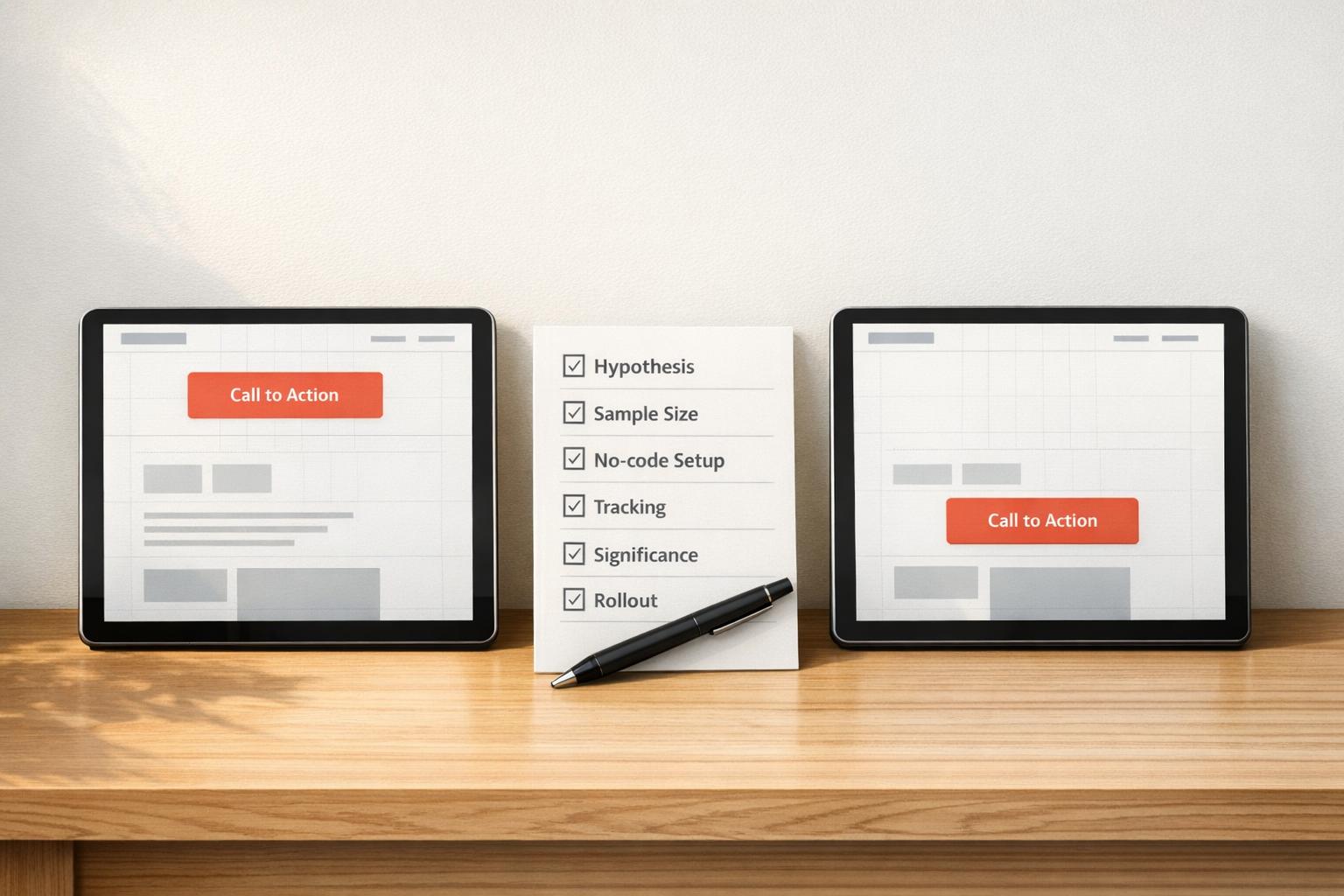

How to Rank Higher on Google Search Without Losing Sleep

How to Rank Higher on Google Search Without Losing Sleep
 24-03-2025 (Last modified: 24-03-2025)
24-03-2025 (Last modified: 24-03-2025)
If you’ve ever wondered why your competitor’s website shows up on page one while yours is stuck in Google limbo, you’re not alone. Figuring out how to rank higher on Google search can feel like chasing a moving target – but it’s not impossible.
Whether you’re running a business, launching a blog, or finally getting around to building that side hustle site, this guide breaks down the need-to-know SEO moves that actually make a difference.
No fluff. No 100-step checklists. Just practical, doable advice to help you show up where your audience is already looking.

So, Why Is Ranking on Google So Important?
Because let’s face it—no one’s clicking on page 2.
A higher position on Google doesn’t just boost your ego. It:
- Increases your organic (aka free) traffic
- Builds credibility and trust with users
- Reduces your reliance on paid ads
- Helps you reach people actively searching for what you offer
The good news? With some smart strategy and a bit of consistency, you can figure out how to rank higher on Google search and actually stay there.
Understanding the Basics: How Google Ranks Stuff
Google’s ranking system isn’t based on fairy dust. It’s driven by a complex algorithm that evaluates hundreds of factors to decide which pages are most relevant to a search.
A few of the biggies:
- Relevance: Does your content match what someone’s searching for?
- Quality: Is your content trustworthy, well-written, and helpful?
- User experience: Is your site fast, mobile-friendly, and easy to use?
- Authority: Do other sites link to you (a sign you’re legit)?
This is just a snapshot – we’ll cover Google’s algorithm in more detail in a follow-up post. But for now, let’s focus on how you can take action.
1. Start with Keyword Research (and Do It Properly)
You can’t rank if you don’t know what you’re trying to rank for.
Here’s how to get smart about it:
- Use free tools like Ubersuggest, Google Trends, or AnswerThePublic to find keywords your audience is searching.
- Target long-tail keywords – they’re less competitive and more specific (e.g., “affordable web design for small businesses”).
- Don’t forget local intent if you’re targeting your town or city.
Once you’ve got your list, use the keyword how to rank higher on Google search (wink wink) naturally throughout your content. Title, headers, URL, meta description, and first paragraph? Check.

2. Optimise Your On-Page SEO Like a Pro
Your content might be great—but if Google can’t read it right, it won’t rank.
Here’s what to double-check:
- Title tag: Include your keyword, but make it clickable.
- Meta description: Summarise the page clearly and make it enticing.
- Headings (H1, H2, etc.): Use them to structure content logically.
- Alt text on images: Helps with accessibility and SEO.
- URL structure: Keep it short and keyword-rich (e.g., /rank-higher-google-search).
On-page SEO is all about natural content. Sprinkle the keyword how to rank higher on Google search in a way that feels natural – not robotic. If it reads like a robot wrote it, Google (and your users) will bounce.
3. Create Content That Deserves to Rank
Google’s gotten really good at sniffing out fluff. If you want to know how to rank higher on Google search, focus on delivering value.
Here’s what that looks like:
- Content that answers real questions people are searching for
- Guides, tutorials, or checklists that are actually useful
- Blog posts that go deeper than surface-level info
- Content that’s updated regularly to stay fresh
Hot tip: Check out the top-ranking pages for your keyword. What are they missing? Fill the gap with your content and make it better.
4. Earn Quality Backlinks (Without Begging)
Backlinks are still one of the strongest signals that your content matters.
You don’t need to cold email 300 people—try this instead:
- Write guest posts for sites in your niche
- Create data or infographics that others want to link to
- Build relationships with people in your industry (collaborations go a long way)
- Use 3Way.Social to swap links and guest posts with other users
One or two solid backlinks from reputable sites can make a bigger impact than a hundred spammy ones.

5. Fix Technical Issues That Hurt Your Rankings
Sometimes it’s not your content that’s the problem—it’s your site.
Make sure:
- Your site loads quickly (under 3 seconds is ideal)
- It looks and works great on mobile
- You’re using HTTPS (secure site)
- You’ve submitted a sitemap via Google Search Console
Use PageSpeed Insights or GTmetrix to diagnose issues. Even small technical fixes can move the needle.
6. Keep an Eye on Google’s Algorithm Updates
Here’s the kicker: what worked six months ago might not work today.
Google updates its algorithm a lot—sometimes small tweaks, sometimes major overhauls like Core Updates. That’s why staying informed is half the battle.
What you can do:
- Follow sites like Search Engine Journal or Moz
- Sign up for Google’s Search Central Blog
- This article summarizes the Algorithm excellently by breaking it down into bitesize chunks and including a handy checklist!
- Track traffic dips and spikes in Google Analytics—they often line up with algo changes
In our next article, we’ll unpack how Google’s algorithm really works and what you can do to future-proof your rankings. Stay tuned.
7. Be Patient, But Keep Tweaking
This part no one wants to hear: SEO takes time. But if you’re wondering how to rank higher on Google search, consistency is your best friend.
Keep publishing great content. Keep checking what’s working. And keep tweaking.
If you’re doing the right things—even if they’re small things—they will stack up.
Final Thought
Learning how to rank higher on Google search doesn’t mean learning every single technical SEO trick under the sun. It means:
- Understanding what your audience wants
- Giving it to them in a way Google understands
- Staying consistent, curious, and just a little bit stubborn
Because let’s face it: the top of page one is too good to leave to your competitors.
And hey, if you want to test which pages and headlines actually drive more clicks, you know who to call. (Hint: it rhymes with PageTest.AI.)
say hello to easy Content Testing
try PageTest.AI tool for free
Start making the most of your websites traffic and optimize your content and CTAs.
Related Posts

 03-02-2026
03-02-2026
 Ian Naylor
Ian Naylor
Checklist for A/B Testing CTA Placement
A step-by-step checklist for A/B testing CTA placement: hypothesis, sample size, no-code setup, tracking, significance, and rollout to boost conversions.

 02-02-2026
02-02-2026
 Ian Naylor
Ian Naylor
Best Practices for AI Competitor Analysis in 2025
Set goals, track AI-search competitors, run keyword and content gap analysis, use AI-driven SWOT, and monitor real-time market changes to gain an edge in 2026.

 31-01-2026
31-01-2026
 Ian Naylor
Ian Naylor
How To Read Heatmap Data For CRO
Interpret click, scroll, and mouse-movement heatmaps to spot hotspots, fix rage clicks, improve CTA placement, and lift conversions with data-driven changes.
